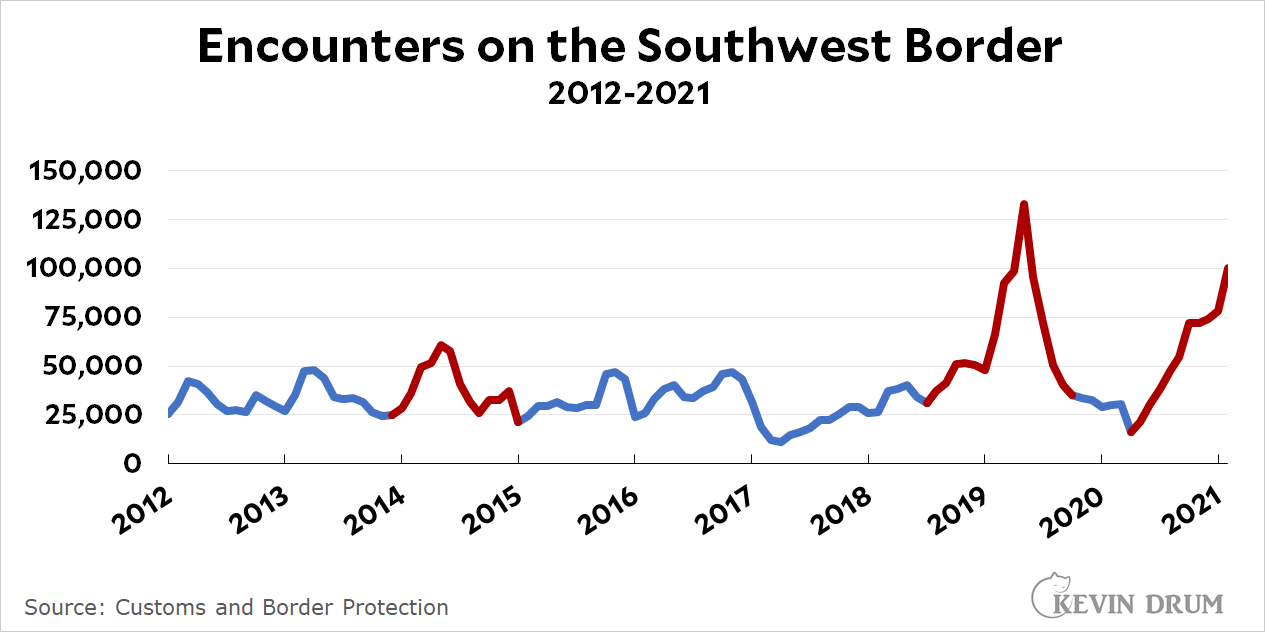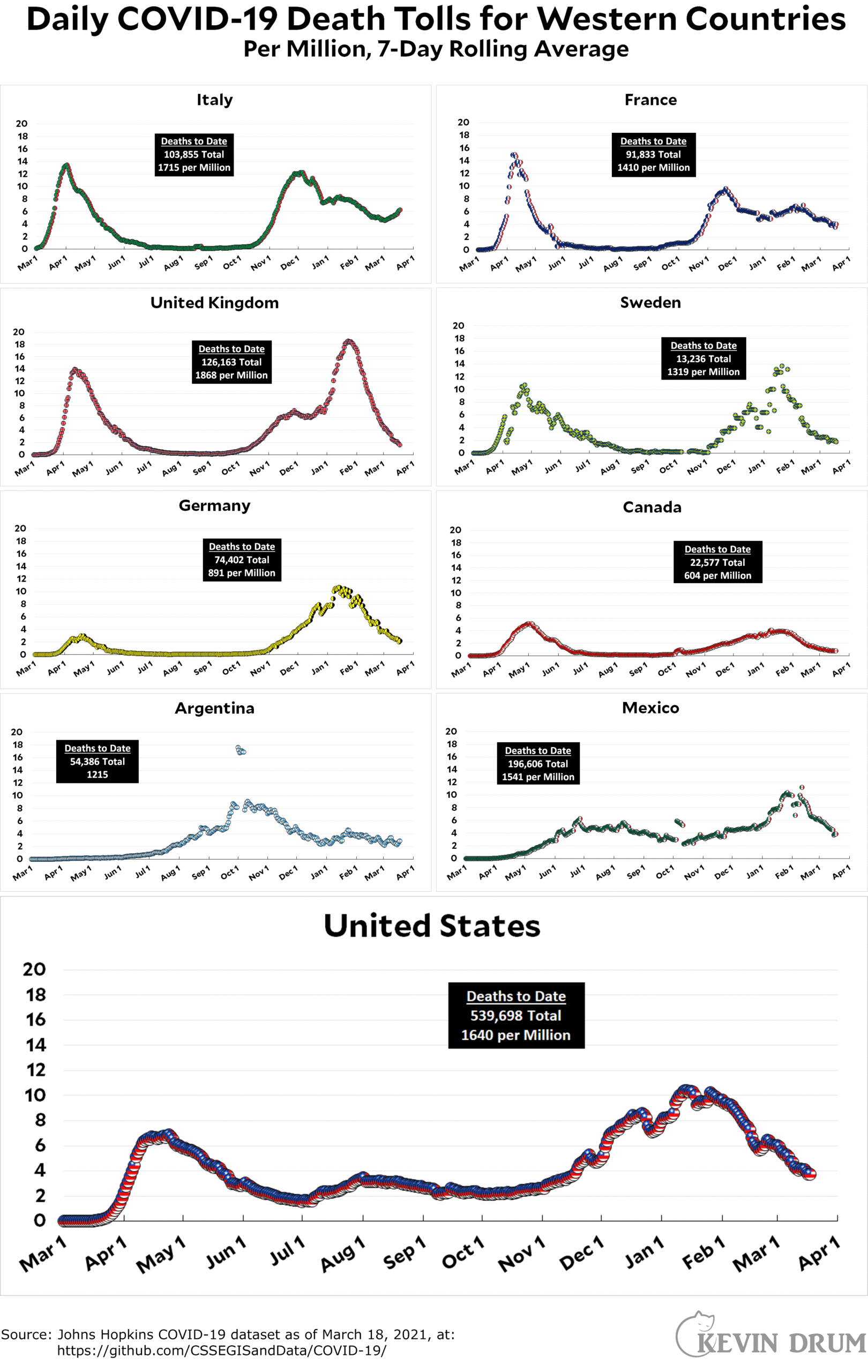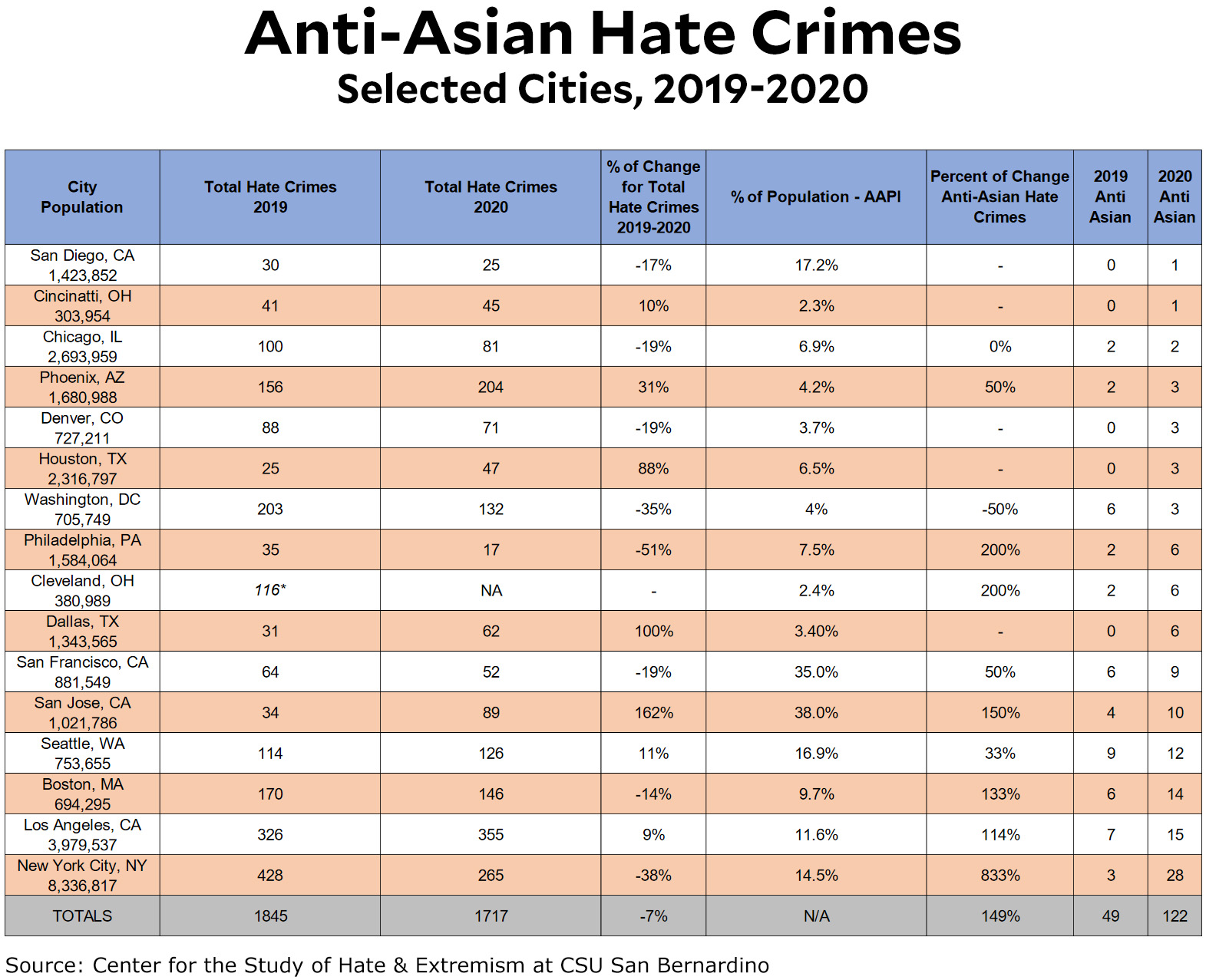The Washington Post has a front page story this weekend about the Biden administration's tentative approach to border security and how it's prompted a huge surge of refugees and asylum seekers. It's getting a lot of pushback from progressives, who point out correctly that the surge started before the election and was partly the fault of new policies in Mexico, which we had no hand in.
Fine. If you don't like the Post story, read the LA Times story instead. It's better anyway—and, if anything, makes it even clearer that Biden's election and his shifting stance on the border is responsible for a big part of the current surge:
The belief that the end of the Trump administration has opened the border has spread throughout the region alongside another rumor: Young children are the ticket in.
....The increase is evident in the streams of families trudging north through the jungles of southern Mexico, in the crowded shelters of northern Mexican border cities and in southern Texas, where in recent days a constant flow of people has crossed the swiftly moving Rio Grande on rafts and turned themselves in to federal authorities.
....“The president helped us,” said Luis Enrique Rodriguez Villeda, a 31-year-old from Guatemala who crossed from Tamaulipas into Texas on a plastic raft this past week with his 2-year-old daughter, Ariana. “I’ve seen how he opened the border and gave people permission to come for a better life.” Rodriguez said he had traveled with his daughter because smugglers offered him a discount and told him it would help his chances of being allowed to stay.
This is not the first time there's been a surge of migrants on the southwest border. There was one in 2014 during the Obama administration, one in 2018 during the Trump administration, and now one in 2020-21, spanning the Trump and Biden administrations.

If you believe in more-or-less open borders, none of this will bother you. But if, like most people, you believe the border ought to be secured, this is a big problem and Biden isn't doing a good job of addressing it. Progressives shouldn't kid themselves about this.





 As the Center notes, this large increase comes against a background of decline in overall hate crime between 2019 and 2020.
As the Center notes, this large increase comes against a background of decline in overall hate crime between 2019 and 2020.